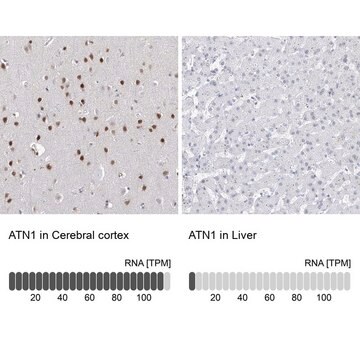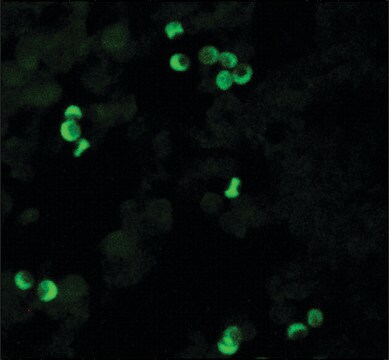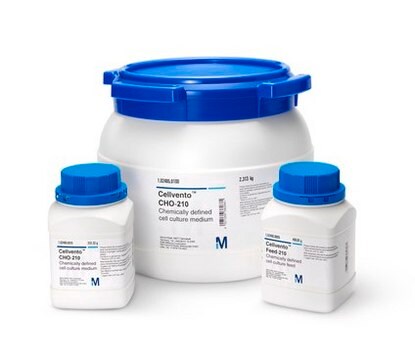MAC131M
Mouse anti-Camelid IgG2/3 (heavy chain) Antibody, clone P17JE11
clone P17JE11, from mouse
Synonym(s):
HCAbs, Camelid antibody
About This Item
Recommended Products
biological source
mouse
Quality Level
antibody form
purified immunoglobulin
antibody product type
secondary antibodies
clone
P17JE11, monoclonal
species reactivity
Camelidae, camel, llama
packaging
antibody small pack of 25 μg
technique(s)
ELISA: suitable
isotype
IgG1κ
target post-translational modification
unmodified
General description
Specificity
Immunogen
Application
Secondary & Control Antibodies
Quality
ELISA Analysis: 2 µg/mL of this antibody detected Camelid IgG2/3 (heavy chain).
Physical form
Storage and Stability
Other Notes
Disclaimer
Not finding the right product?
Try our Product Selector Tool.
Storage Class Code
12 - Non Combustible Liquids
WGK
WGK 1
Flash Point(F)
Not applicable
Flash Point(C)
Not applicable
Regulatory Listings
Regulatory Listings are mainly provided for chemical products. Only limited information can be provided here for non-chemical products. No entry means none of the components are listed. It is the user’s obligation to ensure the safe and legal use of the product.
JAN Code
MAC131:
MAC131-25UG:
Certificates of Analysis (COA)
Search for Certificates of Analysis (COA) by entering the products Lot/Batch Number. Lot and Batch Numbers can be found on a product’s label following the words ‘Lot’ or ‘Batch’.
Already Own This Product?
Find documentation for the products that you have recently purchased in the Document Library.
Our team of scientists has experience in all areas of research including Life Science, Material Science, Chemical Synthesis, Chromatography, Analytical and many others.
Contact Technical Service








